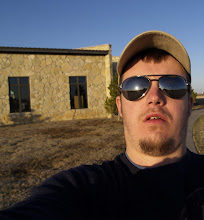Commentary by Clark
The current state of the society, in regards to spiritual fitness, is in dismal shape. Like Ray had mentioned in his sermon this past Sunday, there are generations of people who are out of the church and only a small percentages of Americans actually attend church compared to the numbers that attended years ago. As a country, one that was founded upon Christian faith, we are following suit with many European nations as we experience an increase in agnostics and atheists.
In the first chapter of Romans, Paul writes about wrath of God upon the Jews and Gentiles for their wickedness. Paul explains how the sinful desires of men overcame the obedience of God, even though they understood knew God's commands. Verse 21 states, "For although they knew God, they neither glorified him as God nor gave thanks to him, but their thinking became futile and their foolish hearts were darkened." Then in verse 28, Paul wrote, "Furthermore, since they did not think it worthwhile to retain the knowledge of God, he gave them over to a depraved mind, to do what ought not to be done."
Is this not what is happening in our society today? Because we have strayed from His teachings, our hearts have been hardened and we have become one with sin -- both in embracing it and exploiting it. However, we as the Bride of Christ can make a difference, but we must find a way to reach the un-churched.
In the ninth chapter of Corinthians, verses 19-23, Paul writes,
"Though I am free and belong to no man, I make myself a slave to everyone, to win as many as possible. To the Jews I became like a Jew, to win the Jews. To those under the law I became like one under the law (though I myself am not under the law), so as to win those under the law. To those not having the law I became like one not having the law (though I am not free from God's law but am under Christ's law), so as to win those not having the law. To the weak I became weak, to win the weak. I have become all things to all men so that by all possible means I might save some. I do all this for the sake of the gospel, that I may share in its blessings."
Following Paul's example, we should do the same for our community. We must reach them, but we have to reach them on their terms. Now I'm saying that we become like the foolish, dark-hearted sinners, but rather we offer to them an experience to meet God and begin a relationship with God in a manner that is not so foreign to them.
This is not a new idea for church. This is not a new idea for evangelism. The way, in my opinion, to reach this lost society is to use tried and true techniques of the past. The techniques I am referring to revolve around the word contemporary. Encarta defines contemporary as "modern person or thing: somebody or something in existence at the present time." For instance, our worship services on Sunday were contemporary at one time, and for some in the congregation it may still feel contemporary. But for the average un-churched person below the age of fifty, I'd venture to say that this particular style feels out of touch.
Now, don't get me wrong, I'm not saying we should change our Sunday worship services. On the contrary, I am proposing that we investigate the possibility of adding a worship service; one that follows the time-proven aspects of church growth: modernizing. I envision a mid-week praise and worship service featuring instruments of various types, audio/visual experiences, communion, and a message brought to the congregation via a speaker, whether it be a pastor, a lay member, elder, deacon, or a spirit-filled youth member.
It is my belief that many young families and college age people would be more likely to attend a church service during the week so that they maintain an open weekend. As society becomes busier and more involved with various activities, I believe many un-churched people are unwilling to give up one of their weekend mornings to attend something that feels foreign to them. If put together and promoted properly, I believe that a mid-week service at FCC-Shawnee could be a very successful form of evangelism and worship.
I propose that we follow the example of Paul and the churches before us and investigate into this option. And as always, I'd love to hear feedback from you on this idea.
Josh
Sunday, September 19, 2010
Subscribe to:
Posts (Atom)
